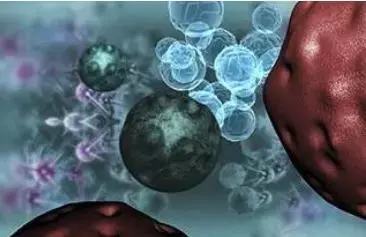- Home
- Medical news & Guidelines
- Anesthesiology
- Cardiology and CTVS
- Critical Care
- Dentistry
- Dermatology
- Diabetes and Endocrinology
- ENT
- Gastroenterology
- Medicine
- Nephrology
- Neurology
- Obstretics-Gynaecology
- Oncology
- Ophthalmology
- Orthopaedics
- Pediatrics-Neonatology
- Psychiatry
- Pulmonology
- Radiology
- Surgery
- Urology
- Laboratory Medicine
- Diet
- Nursing
- Paramedical
- Physiotherapy
- Health news
- Fact Check
- Bone Health Fact Check
- Brain Health Fact Check
- Cancer Related Fact Check
- Child Care Fact Check
- Dental and oral health fact check
- Diabetes and metabolic health fact check
- Diet and Nutrition Fact Check
- Eye and ENT Care Fact Check
- Fitness fact check
- Gut health fact check
- Heart health fact check
- Kidney health fact check
- Medical education fact check
- Men's health fact check
- Respiratory fact check
- Skin and hair care fact check
- Vaccine and Immunization fact check
- Women's health fact check
- AYUSH
- State News
- Andaman and Nicobar Islands
- Andhra Pradesh
- Arunachal Pradesh
- Assam
- Bihar
- Chandigarh
- Chattisgarh
- Dadra and Nagar Haveli
- Daman and Diu
- Delhi
- Goa
- Gujarat
- Haryana
- Himachal Pradesh
- Jammu & Kashmir
- Jharkhand
- Karnataka
- Kerala
- Ladakh
- Lakshadweep
- Madhya Pradesh
- Maharashtra
- Manipur
- Meghalaya
- Mizoram
- Nagaland
- Odisha
- Puducherry
- Punjab
- Rajasthan
- Sikkim
- Tamil Nadu
- Telangana
- Tripura
- Uttar Pradesh
- Uttrakhand
- West Bengal
- Medical Education
- Industry
Myeloid-derived suppressor cells a potential biomarker for metastatic melanoma;claims study

Defining the level and the type of spontaneous tumor immunity can help in implementing patient prognostication and tailoring treatment intervention. Preclinical models clearly proved that the onset of protective tumor immunity requires the coordination of multiple cell types and tissues at organism-wide level.However, the assessment of tumor immunological features has been largely focused on tumor biopsies through the quantification and the spatial distribution of the immune infiltrate.
This holds particularly true for Myeloid-derived suppressor cells (MDSC), which are generated in the bone marrow by myelopoiesis, enter peripheral blood and then colonize tumor and immune-relevant sites to exert their regulatory functions.MDSC are notoriously a marker of cancer-associated immunosuppression and the hallmark of a poorly controllable disease in most human cancers. Despite the massive evidence of the role of MDSC as a cornerstone in cancer progression, these cells remain a yet-to-be-exploited biomarker in real-life clinical practice.
According to a recent research report, a myeloid index score greater than zero identifies melanoma patients with a more aggressive disease, thus acting as a simple blood biomarker that can help tailoring therapeutic choices in real-life oncology. The findings have been put forth in Journal of Immunotherapy Cancer.
In the current study, researchers used a multistep downsizing process to verify whether a core of few markers could be sufficient to capture the prognostic potential of myeloid cells in peripheral blood mononuclear cells (PBMC) of metastatic melanoma patients.
Regarding the study design, in baseline frozen PBMC from a total of 143 stage IIIc to IV melanoma patients, the team first assessed the relevant or redundant expression of myeloid and MDSC-related markers by flow cytometry (screening set, n=23 patients). Subsequently, they applied the identified panel to the development set samples (n=59 patients undergoing first/second-line therapy) to obtain prognostic variables associated with overall survival (OS) and progression-free survival (PFS) by machine learning adaptive index modeling. Finally, the identified score was confirmed in a validation set (n=61) and compared with standard clinical prognostic factors to assess its additive value in patient prognostication.
Data analysis revealed some key facts.
- This selection process led to the identification of what we defined myeloid index score (MIS), which is composed by four cell subsets (CD14+, CD14+HLA-DRneg, CD14+PD-L1+ and CD15+ cells), whose frequencies above cut-offs stratified melanoma patients according to progressively worse prognosis.
- Patients with a MIS=0, showing no over-threshold value of MIS subsets, had the best clinical outcome, with a median survival of >33.6 months, while in patients with MIS 1→3, OS deteriorated from 10.9 to 6.8 and 6.0 months as the MIS increased (p<0.0001, c-index=0.745).
- MIS clustered patients into risk groups also according to PFS (p<0.0001).
- The inverse correlation between MIS and survival was confirmed in the validation set, was independent of the type of therapy and was not interfered by clinical prognostic factors.
- MIS HR was remarkably superior to that of lactate dehydrogenase, tumor burden and neutrophil-to-lymphocyte ratio.
For full article follow the link: 10.1136/jitc-2020-001167
Primary source: Journal of Immunotherapy Cancer
Dr Satabdi Saha (BDS, MDS) is a practicing pediatric dentist with a keen interest in new medical researches and updates. She has completed her BDS from North Bengal Dental College ,Darjeeling. Then she went on to secure an ALL INDIA NEET PG rank and completed her MDS from the first dental college in the country – Dr R. Ahmed Dental College and Hospital. She is currently attached to The Marwari Relief Society Hospital as a consultant along with private practice of 2 years. She has published scientific papers in national and international journals. Her strong passion of sharing knowledge with the medical fraternity has motivated her to be a part of Medical Dialogues.
Dr Kamal Kant Kohli-MBBS, DTCD- a chest specialist with more than 30 years of practice and a flair for writing clinical articles, Dr Kamal Kant Kohli joined Medical Dialogues as a Chief Editor of Medical News. Besides writing articles, as an editor, he proofreads and verifies all the medical content published on Medical Dialogues including those coming from journals, studies,medical conferences,guidelines etc. Email: drkohli@medicaldialogues.in. Contact no. 011-43720751


